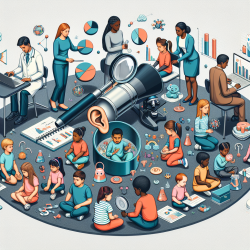Introduction
The COVID-19 pandemic was a stress test for many systems, including local food systems. The research article "Pivoting is exhausting: A critical analysis of local food system resilience" provides a deep dive into the resilience of local food producers in Iowa during the pandemic. As practitioners in the field of education and therapy, there are valuable lessons to be learned from this research about resilience, adaptation, and the socio-emotional costs associated with these processes.
Understanding Resilience
Local food systems (LRFS) have been celebrated for their resilience, particularly during the early days of the pandemic. Their ability to adapt quickly to disruptions is attributed to several factors:
- Short Supply Chains: The proximity of producers to consumers allows for quick reconfiguration of protocols to meet new demands.
- Diverse Portfolios: The variety of products and marketing channels provides a buffer against external shocks.
- Social Embeddedness: Transactions are often mediated by social relations and values, fostering a sense of community and mutual support.
The Socio-Emotional Costs
While the resilience of LRFS is commendable, the research highlights the socio-emotional costs borne by producers. These include:
- Stress and Exhaustion: The constant need to adapt and pivot was mentally and physically taxing for producers.
- Moral Dilemmas: Producers faced ethical questions about their responsibility to provide food while ensuring safety for themselves and their communities.
- Fickle Consumer Behavior: Surges in demand followed by waning interest added to the unpredictability and stress for producers.
Lessons for Practitioners
As practitioners in education and therapy, the lessons from this research can be applied to our own fields:
- Adaptability: Like LRFS, educational and therapeutic services must remain adaptable to changing circumstances, particularly in times of crisis.
- Community Engagement: Building strong relationships and networks can provide crucial support during challenging times.
- Addressing Socio-Emotional Needs: Recognizing and addressing the socio-emotional costs of resilience is vital for the well-being of practitioners and the communities they serve.
Encouraging Further Research
The research on LRFS resilience opens the door for further exploration into how other systems, including educational and therapeutic services, can learn from these experiences. Practitioners are encouraged to delve deeper into the socio-emotional aspects of resilience and adaptation.
To read the original research paper, please follow this link: Pivoting is exhausting: A critical analysis of local food system resilience.










